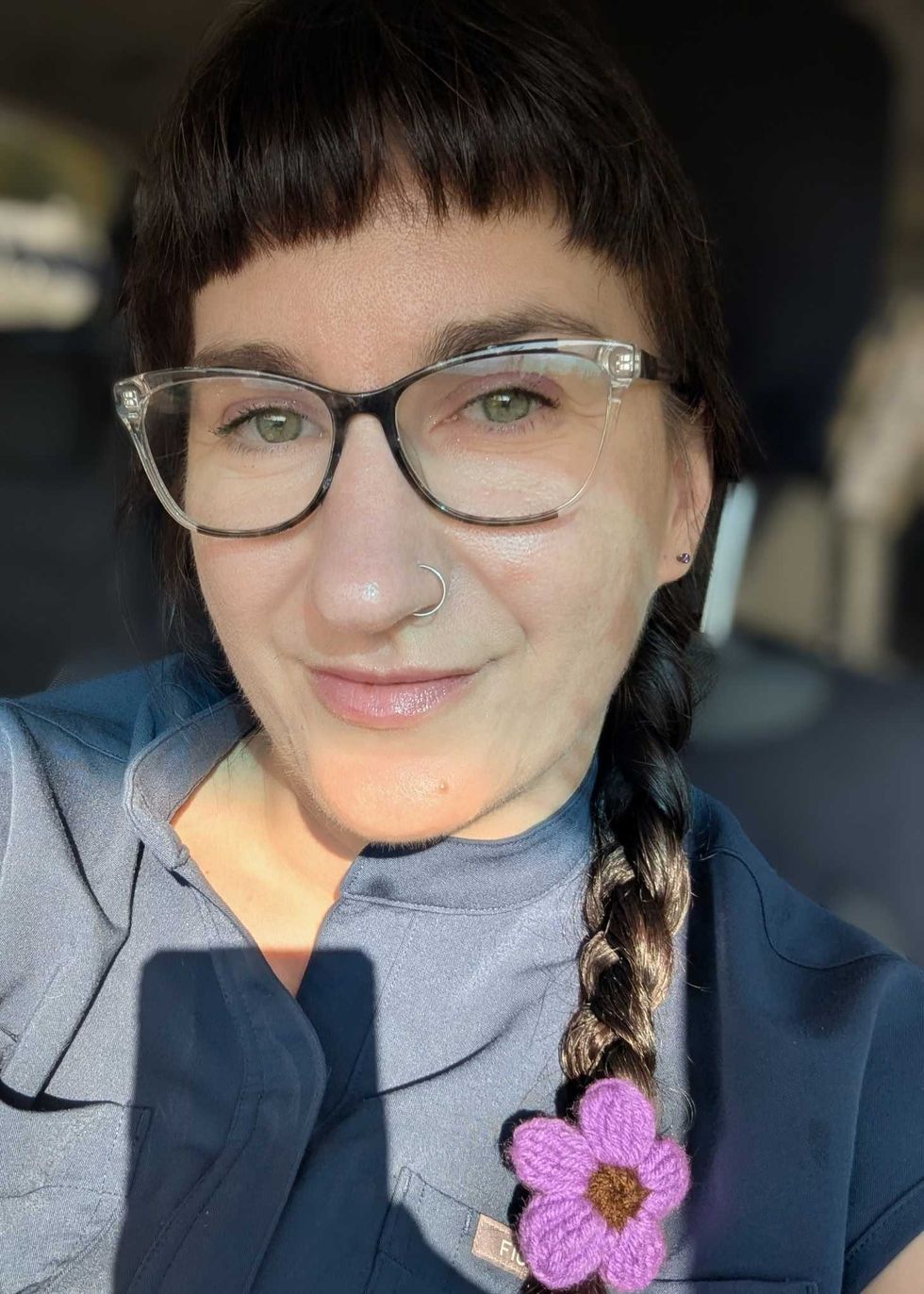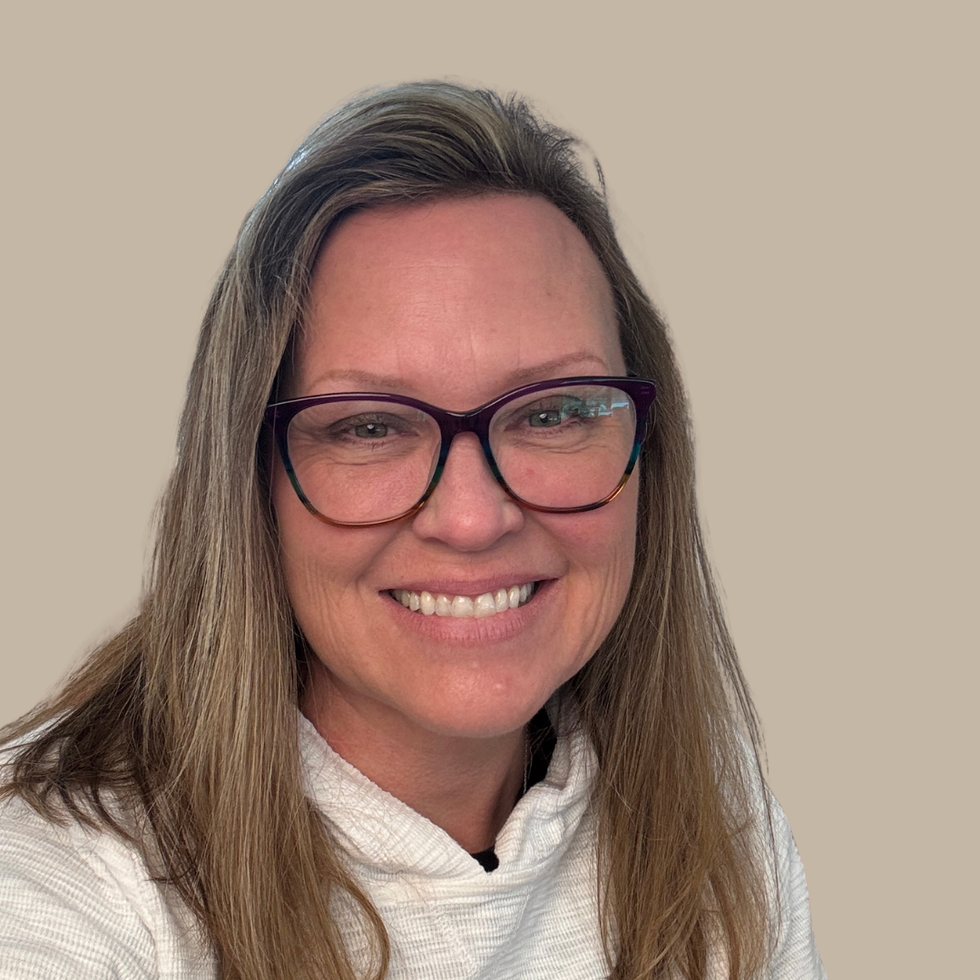
When Heather Simpson decided she wanted to become a mother, she began researching healthy lifestyle choices to increase her chances of becoming pregnant.
As she researched, she kept coming across ads for a docuseries called The Truth about Vaccines, so she and her then-husband paid $200 to access the nine-hour series.
“We were hooked,” said Simpson, from Dallas, now mother to an eight-year-old daughter.
Featured in the series was Robert F. Kennedy Jr., founder of Children’s Health Defense, an anti-vaccine advocacy group.
Thanks to famous forebears including his uncle, President John F. Kennedy, and father, former New York senator Robert F. Kennedy, the advocate’s name carried weight.
“I was like, ‘Man, if a Kennedy is saying to be cautious, that's probably something,” Simpson said.
“He was a big part of why I even became anti-vax.”
Kennedy claimed to be “pro-safe vaccines,” but “to me that means anti-vax,” Simpson said.
Simpson quickly went down “the rabbit hole of anti-vaxxers,” becoming an “anti-vax influencer,” even once dressing up as the measles for Halloween, making light of the deadly disease.
Simpson discovered Kennedy in 2016. Nearly a decade later, with President Donald Trump having appointed him to lead the Department of Health and Human Services, parents are increasingly questioning whether to vaccinate their children, medical experts told Raw Story.
As U.S. Health Secretary, Kennedy has hired vaccine skeptics and is considering adding children with autism symptoms into a vaccine injury program, despite decades of evidence debunking the claim that vaccines cause autism.
He’s also cut $500 million of research funding for vaccine development, while his hand-picked vaccine panel has weakened recommendations for the COVID-19 vaccine.
‘It’s gotten worse’
Vaccine skepticism “has been going on a long time,” said Taryn Chapman, a vaccine and infectious disease specialist who runs a website, The Vaccine Mom.
“And of course, it's gotten worse with just things that Kennedy's HHS is putting out there.
“People are a lot more skeptical just because they tend to listen to who ‘the authorities’ are, right? But our authorities aren't really the people that probably should be putting out health information.”
Leslie Treece, a doctor at Cookeville Pediatric Associates in Tennessee, said she had seen an increase in parents not vaccinating their children because “they're scared,” given misinformation “floating around.”
Grandparents are also discouraging parents from vaccinating their grandchildren, Treece said, surmising “political” motivations.
For about 15 years, Treece’s practice has asked parents who don’t vaccinate their children to find another provider.
“We wanted to avoid having people infected with things that are sitting in our waiting room that could potentially kill a newborn or harm one of our patients that's immunocompromised, like some of our patients that are on chemotherapy, that sort of thing,” Treece said.
‘What if I'm wrong?’
In 2020, when COVID struck, Simpson “stood up for masks” to stop the spread of the virus — and promptly lost a lot of followers. She wanted her daughter to be protected, so she reached out to medical specialists, including one who specialized in the blood-brain barrier, the cellular border that protects the brain from viruses and other harmful factors.
“Anti-vaxxers have the theory that … polysorbate 80 [an emulsifier used in vaccines] will open [the blood-brain barrier] up, aluminum will get through it and cause inflammation, resulting in autism,” Simpson said.
The specialists she consulted “basically dismantled those arguments on a cellular level, where I was just like, ‘Well, dang, what if I'm wrong about everything?’”
Simpson kept researching “the actual biology of all of it, not just what people feel,” and slowly became more comfortable with vaccines.
When her daughter was scratched by a feral cat, she went to her doctor.
“I was like, ‘I'm so tired of being scared of tetanus. I wish there was something we could do,’ and the doctor just looked at me, and it was kind of a light-bulb moment, like, ‘What am I doing? There’s the tetanus shot,’” Simpson said.
Now calling herself an “anxious vaccinator,” Simpson started a website, Back to the Vax, with another former anti-vax mom, Lydia Greene.
“I was more of like the crunchy mom, like, ‘Don't let your kids have a cupcake from someone else,’” said Greene, a mother of three and a nurse at a hospital in a small Canadian town.
“Really took it to the extreme and got an eating disorder, and it affected my life quite severely in a lot of ways because I wasn't just anti-vaccine. I was anti-medicine, and I was trying to manage my own health issues with natural medicine, and I made myself quite sick a few times.”
 Lydia Greene, a mother of three and co-founder of Back to the Vax (provided photo)
Lydia Greene, a mother of three and co-founder of Back to the Vax (provided photo)
“Crunchy moms” embrace more natural lifestyles for their families but are also sometimes anti-vaccine.
Today, such parents have found a “hero” in Kennedy and his Make America Healthy Again movement, whose other efforts include eliminating food dyes and restricting purchases of sodas and energy drinks by food stamp recipients.
“I call myself the crunchy apostate,” Greene said, “because I just think, ‘If those things worked, we’d just call them medicine.’
“This isn't a new way of thinking. It's just a rebranding, this MAHA movement. It's always been around, this idea of raw milk or whatever they're doing, bleach enemas. On the darker side, they have like this urine therapy stuff, and it's really bonkers.”
Kennedy has championed raw milk, despite long-established concerns about harmful bacteria otherwise killed by pasteurization.
During his Senate confirmation hearing, Kennedy mentioned chlorine dioxide, a remark celebrated by social media users who think it can cure diseases including autism.
Some anti-vaxxers have advocated drinking urine as a cure for ailments. The medical community warns about the practice.
The perpetuation of such misinformation on social media has “a snowball effect,” Chapman said.
“It's gradually getting worse and worse. I hope that we're not going to be put decades behind with all these diseases coming back because of it.”
‘I hope people smarten up’
Greene said she lived with a “paranoia of toxins” but “never talked about this stuff with people because they would laugh.
“I was never out and that public with it, and now these people have been emboldened to share their message and spread their message. The government officials are saying the same thing, so why should they be afraid to spread this information? It's mainstream now.”
Every week or two, Greene said, she hears from a hesitant parent who wants to discuss vaccines through Back to the Vax — but it feels like “10 to one” how many more people are becoming anti-vax instead.
Simpson said one way anti-vaxxers change their minds is through witnessing local outbreaks like the recent surge of measles cases near Lubbock, Texas, her hometown.
“Once they realize, ‘Oh, this can kill my kid or leave them deaf,” and we can't rely on herd immunity, that was kind of a huge changing or turning point for people,” she said.
Greene said she has most success with convincing people who want to vaccinate but are “scared by people like RFK, who muddied the water.”
“It's not easy when you see the messaging that's out there from top officials,” Greene said.
“What can I say? What can I do? It feels like a train is coming at you, and you can't do anything about it. I hope I'm wrong, and I hope people smarten up before we see this massive consequence to the most innocent people in our society.”
‘Exhausted’
Treece expects a “big pendulum swing” back to vaccines as more outbreaks occur.
“I think if people realized just how horrific some of those things were and could be again, it would change their minds,” she said.
 Leslie Treece, doctor at Cookeville Pediatric Associates (provided photo)
Leslie Treece, doctor at Cookeville Pediatric Associates (provided photo)
In the meantime, she said pediatric resident doctors will start needing to learn skills like spinal taps, which have rarely been needed given the near-elimination of meningitis in the US, due to vaccinations.
“Given enough time and enough of a population for those things to circulate in, we're going to have to learn how to treat these things again,” Treece said.
As herd immunity fades, with more unvaccinated people, Greene said she expects stakes as high as death will be needed to persuade some anti-vaxxers to change their minds.
“The only way this is going to change is when kids start dying, and they're going to die in high enough numbers where you know a kid that ended up with horrible brain damage or death because of a vaccine-preventable disease,” Greene said.
“It's not even six degrees of separation anymore.”
As a healthcare professional, Greene said she’s “exhausted” watching the resurgence of even “old-timey” diseases like tuberculosis.
“There's some kind of karmic justice maybe for me in that I wished this would happen when I was an anti-vaxxer, and now I'm watching it play out, and it's a disaster, and I feel guilty a little,” Greene said.
“There's just something poetic, almost, or ironic, about this happening right after I figured out that I was very wrong about it. It’s hard to stay positive.”




